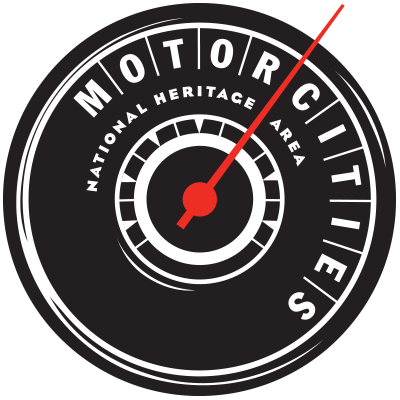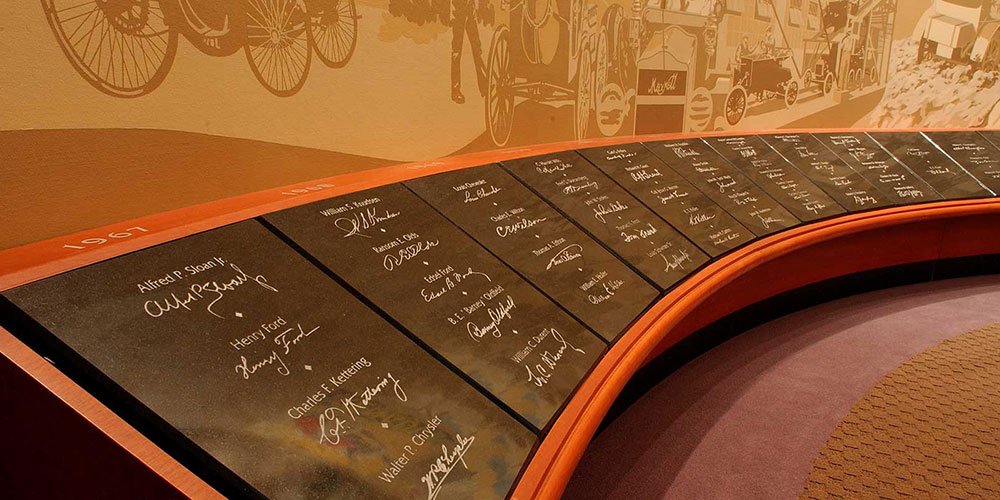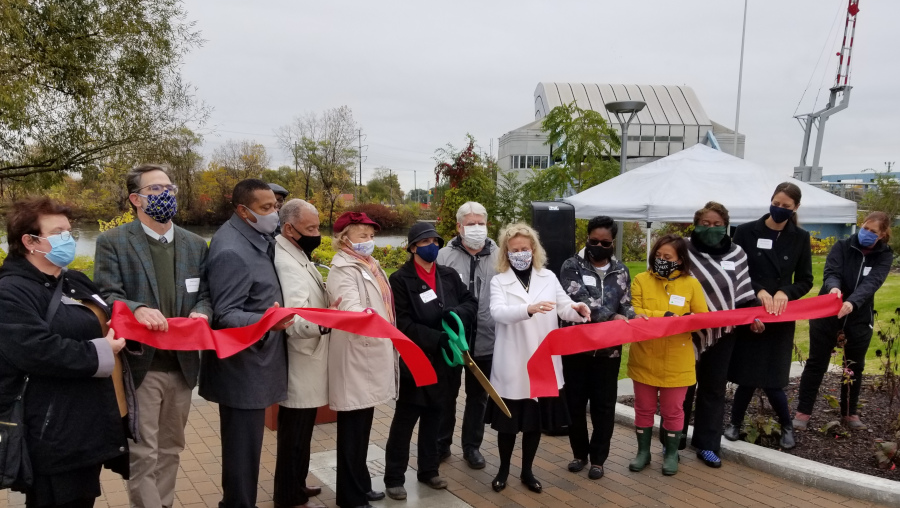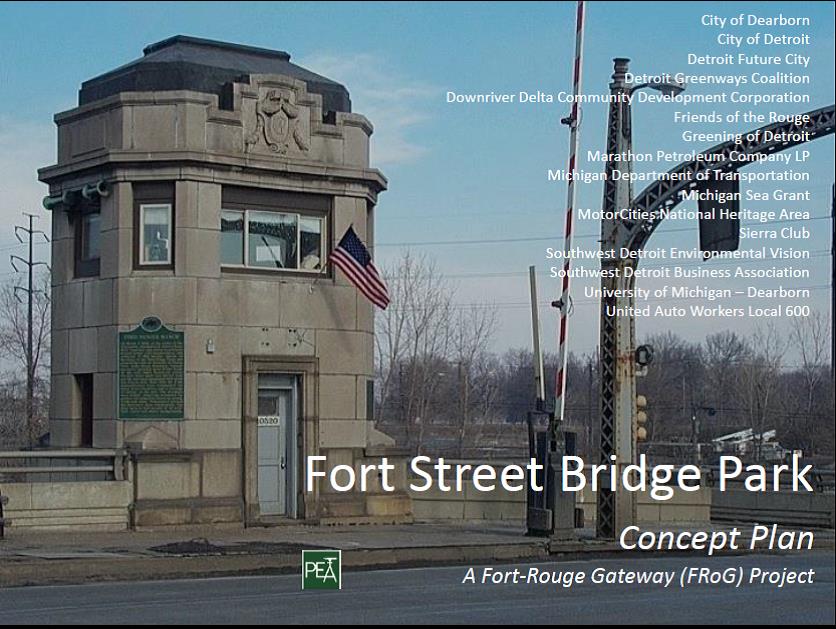Now open ...
The Park was dedicated on October 22, 2020!
Click here to see more photos from the ceremony.
Click here to see coverage from WXYZ-TV Channel 7 from that evening's newscast.
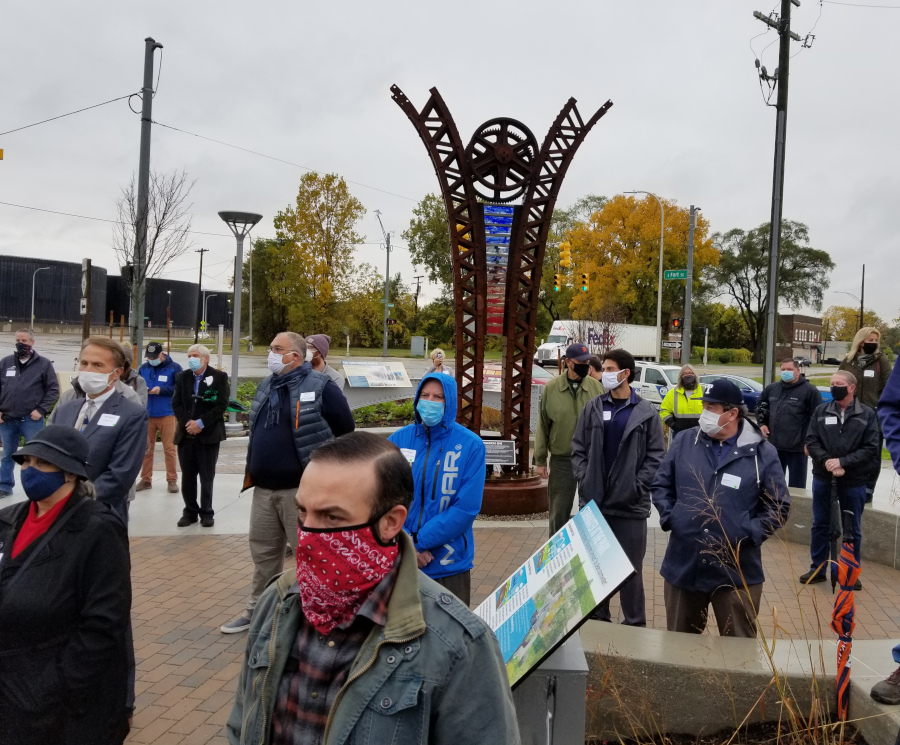
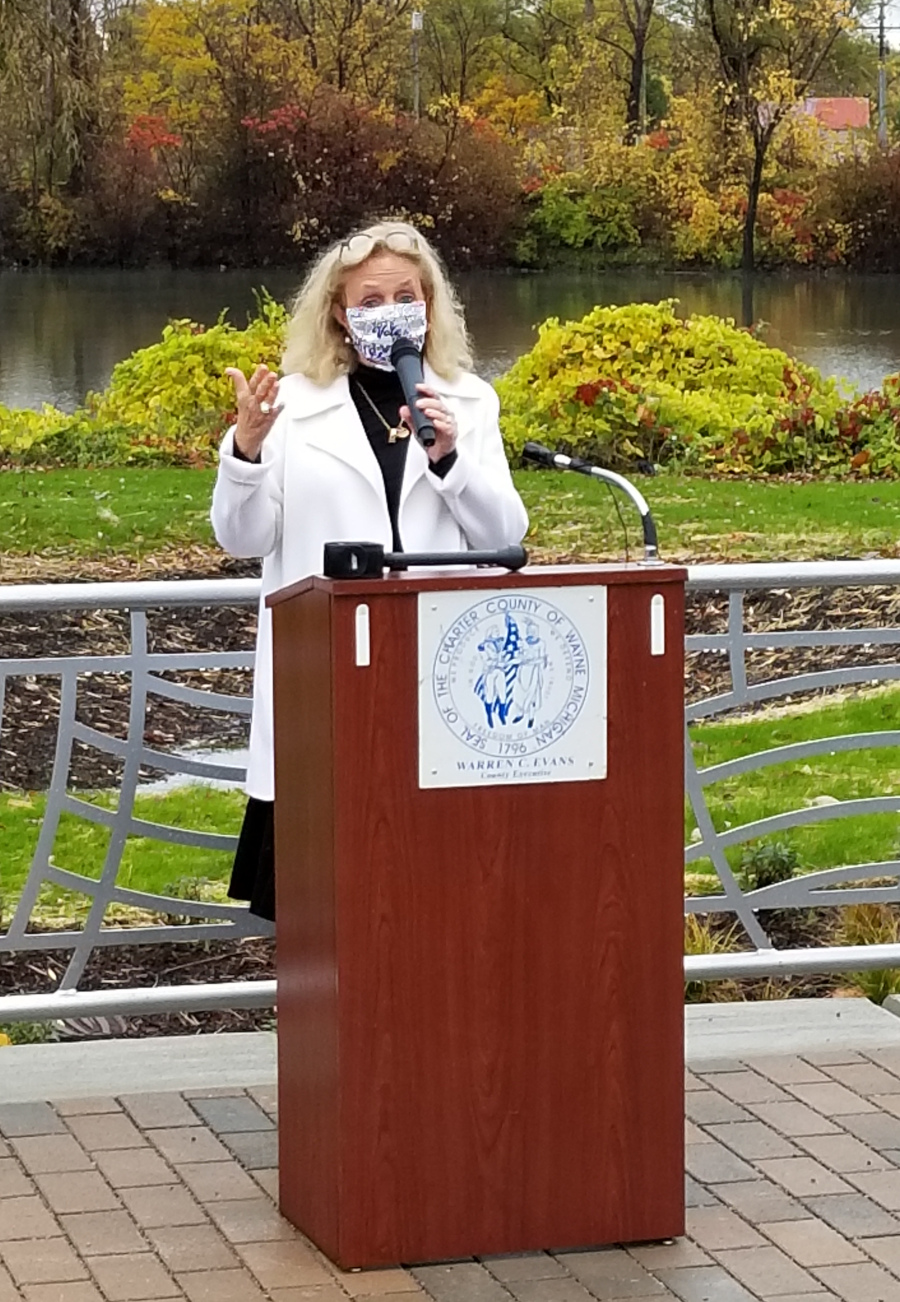 Congresswoman Debbie Dingell
Congresswoman Debbie Dingell
On October 22, 2020 a group of community partners known as the Fort-Rouge Gateway Partnership (FRoG), along with government officials (Congresswoman Debbie Dingell, State Representative Tyrone Carter, Detroit Deputy Mayor Conrad Mallett and Detroit City Councilwoman Raquel Castaneda-Lopez attended), the Friends of the Rouge (FOTR) and funders, cut the ribbon and opened the new Fort Street Bridge Interpretive Park, located at the foot of the Fort Street Bridge, at 12700 Denmark St. in southwest Detroit.
On March 7, 1932, during the Great Depression, auto workers organized a march from Detroit to the Ford Rouge Factory in Dearborn. Known as the Ford Hunger March, the event was one of the most significant events leading to the creation of the United Auto Workers union.
“The historic Fort Street Bridge, central to the march, was decommissioned in 2013, and a new bridge was built in its place,” said Shawn Pomaville-Size, executive director, MotorCities National Heritage Area. “The FRoG partnership has worked to ensure the history of the Hunger March, the significance of the former bridge and its importance to the region is now recognized here at this new Fort Street Bridge Park. It is the culmination of many years of work, and we’re happy to see our new park has become a reality.”
According to Paul Draus, professor of sociology at the University of Michigan – Dearborn and facilitator of the FRoG partnership, the development of the park was “driven by the belief that our shared prosperity was built upon the sacrifice of others – in this case, five unemployed workers who gave their lives in a march for jobs – and the gifts of nature, so often unacknowledged.”
An ancestor of one of the five workers who was killed during the Ford Hunger March, Elana Bussell-Shelef, was one of the people who cut the ribbon to open the park.
A centerpiece of the park is a sculpture called “March On,” funded by the Gordie Howe International Bridge Community Benefit Plan and created by Erik and Israel Nordin of the Detroit Design Center. The sculpture features salvaged parts from the original bridge. The artists' vision is to pay homage to the spirit of the Rouge River and the 1932 Hunger March by evoking the complex interconnection of industry and community, as well as ongoing struggles for environmental justice and social equity.
The park links to major greenway arteries like the Iron Bell Trail, Downriver Linked Greenways - with plans to connect to the Rouge Gateway Trail and to the Lower Rouge River Water Trail. It also holds true to the visionary leadership of the late U-M Dearborn Vice-Chancellor Ed Begale who saw this park and the rebirth of the lower Rouge through the Rouge River Gateway Master Plan as an incredible opportunity for the community. He left his legacy to continue under the leadership of Dr. Paul Draus, who plans to continue holding the torch into Phase II.
Major funding for the park project came from the Ralph C. Wilson Jr. Foundation, Fred A. and Barbara M. Erb Famil Foundation, Ford Motor Company and the Marathon Petroleum Company.
Additional support came from the Ralph C. Wilson Jr. Legacy Fund for Design & Access of the Community Foundation for Southeast Michigan, the Dearborn Rotary Foundation, AK Steel, DTE Energy, UAW Local 600, Mike Herceg & Joan Kelley, the Michigan Labor History Society, the Bussell Family, John B. Wilson (In Memory of Gino Stavola), Bridgewater Interiors, Michael & Nancy Darga, and the Walter & May Reuther Fund.
MotorCities National Heritage Area, the University of Michigan-Dearborn, City of Detroit, City of Dearborn, Marathon Petroleum Company, Michigan Department of Transportation, United Auto Workers Local 600, Friends of the Rouge, Friends of the Detroit River, various neighborhood block groups, PEA Inc. and others have collaborated to build this park.
Almost Done ... September, 2020
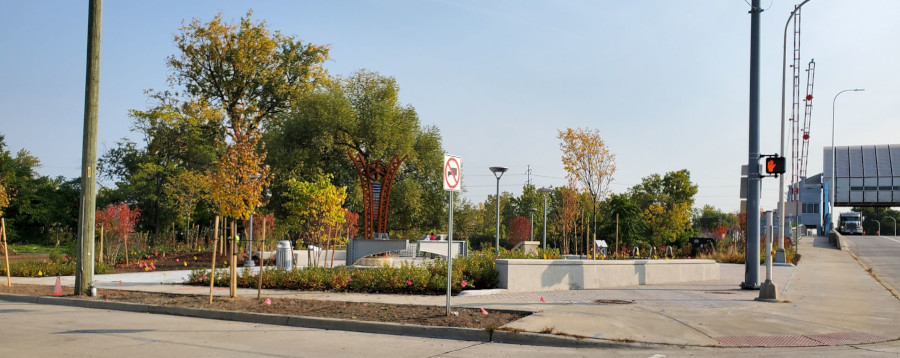
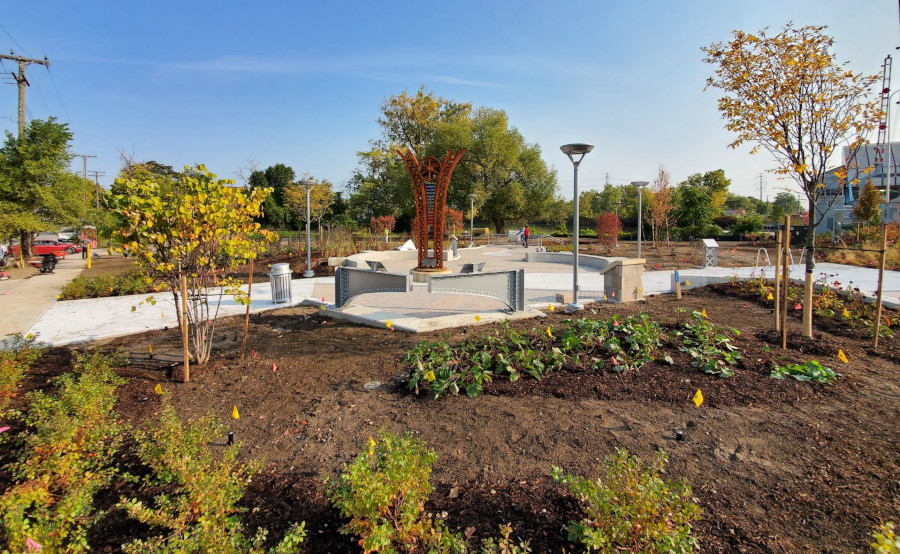
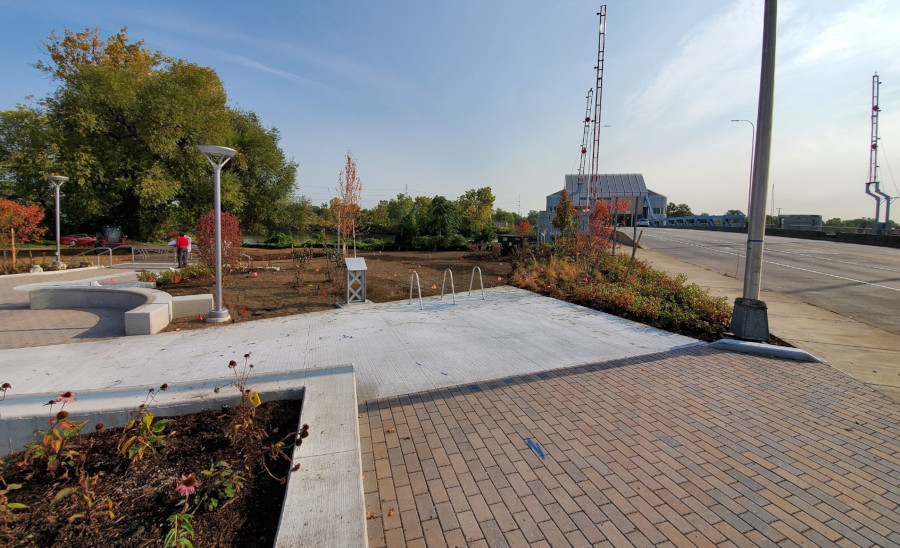
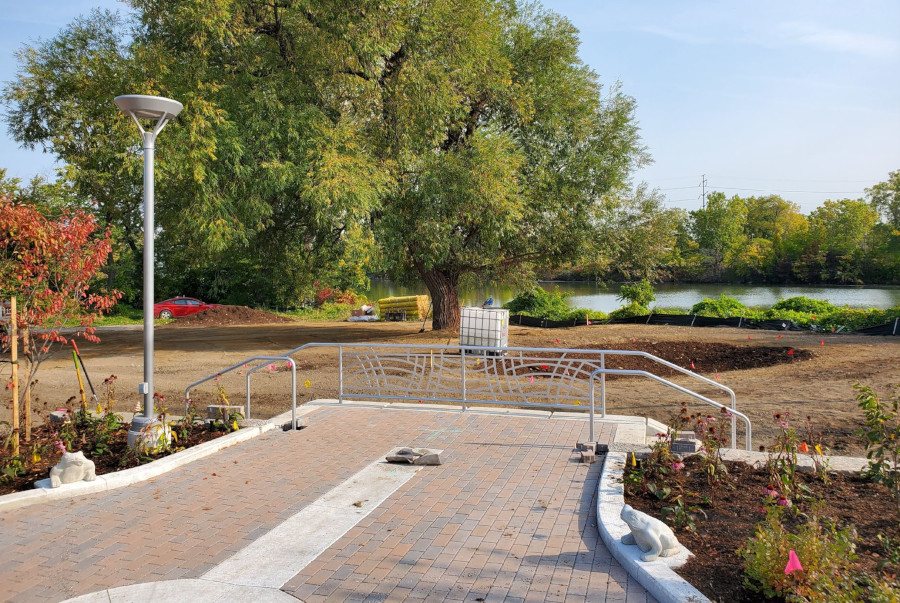
More Progress ... August, 2020
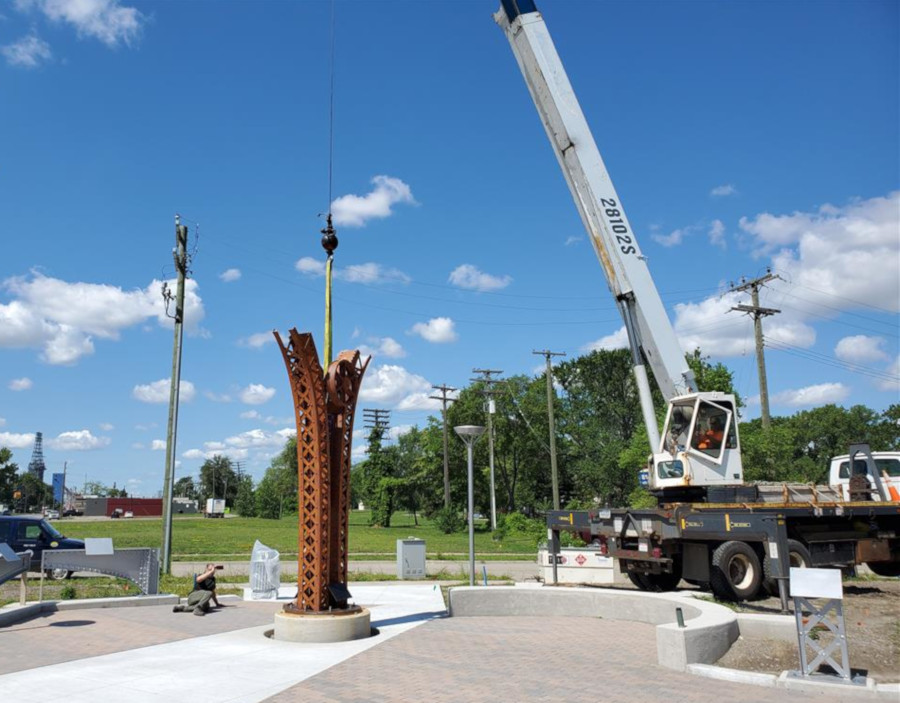
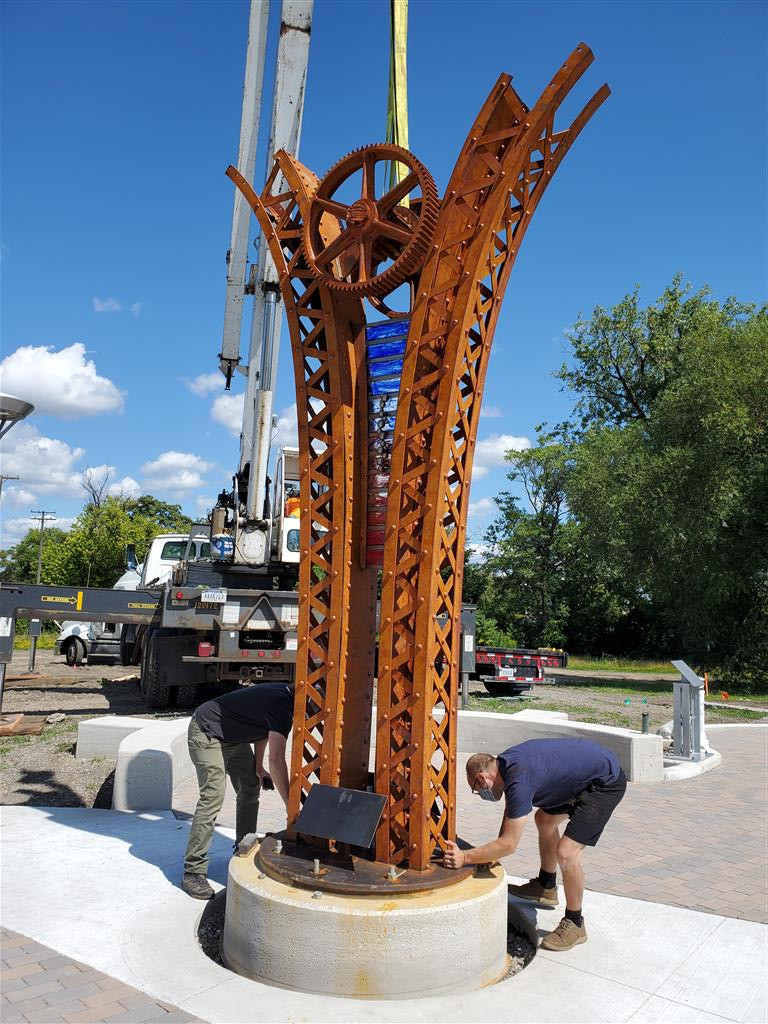
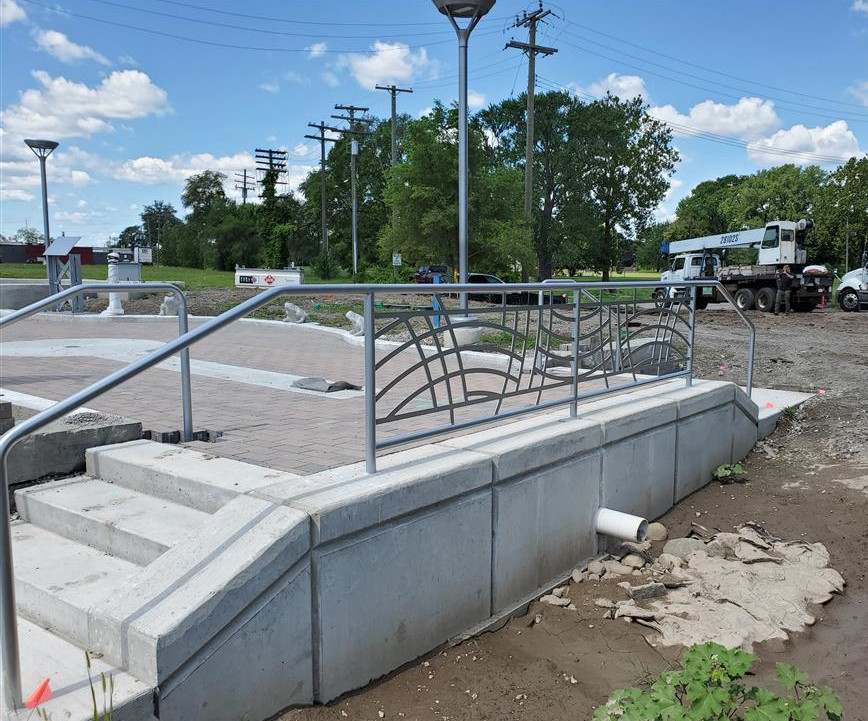
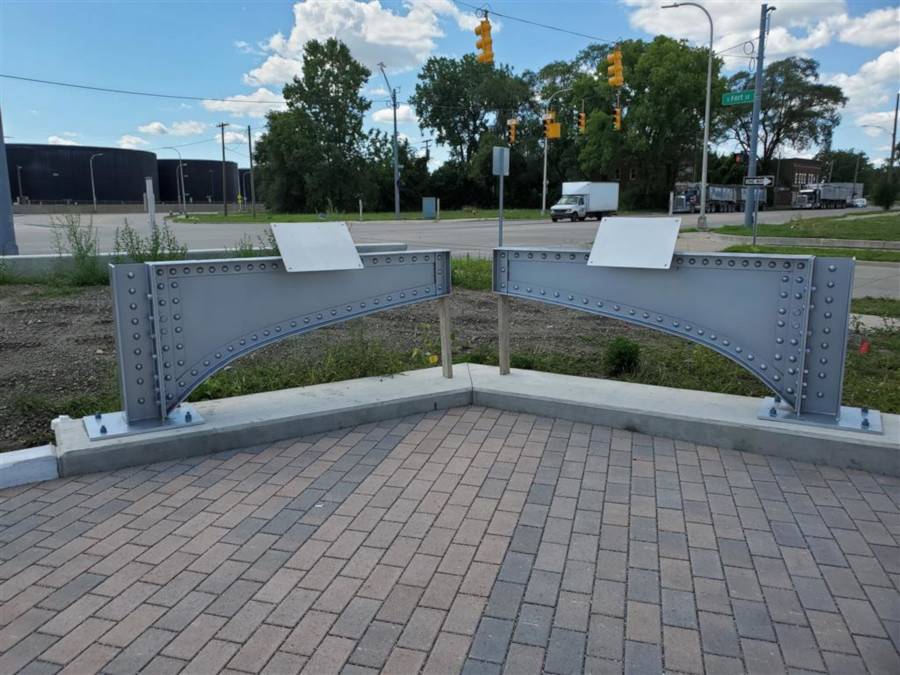
(After a few months away ...) We're getting closer! June, 2020
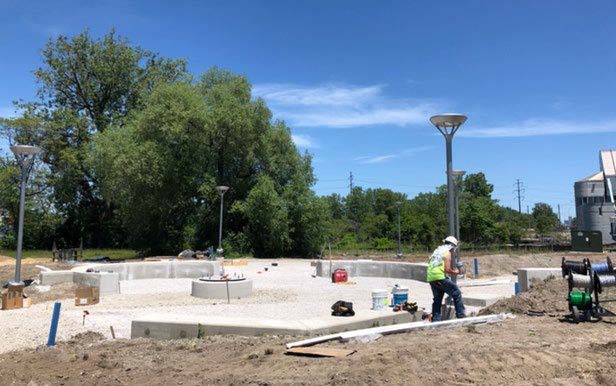
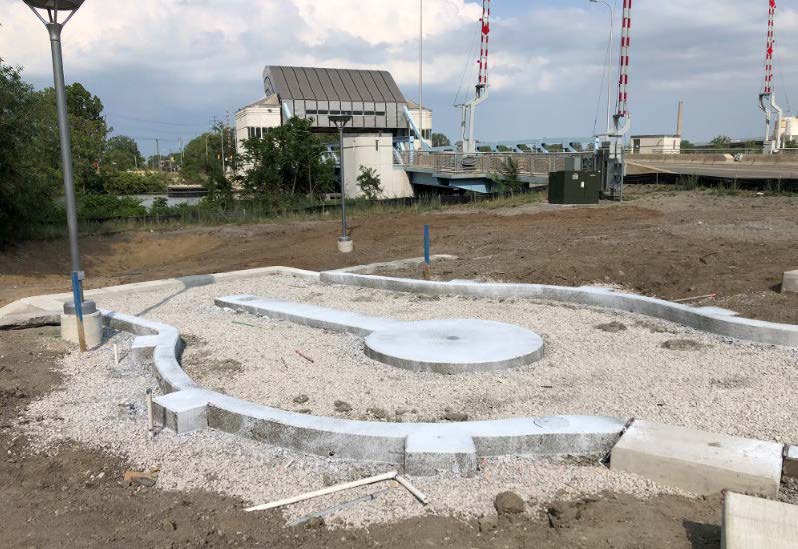
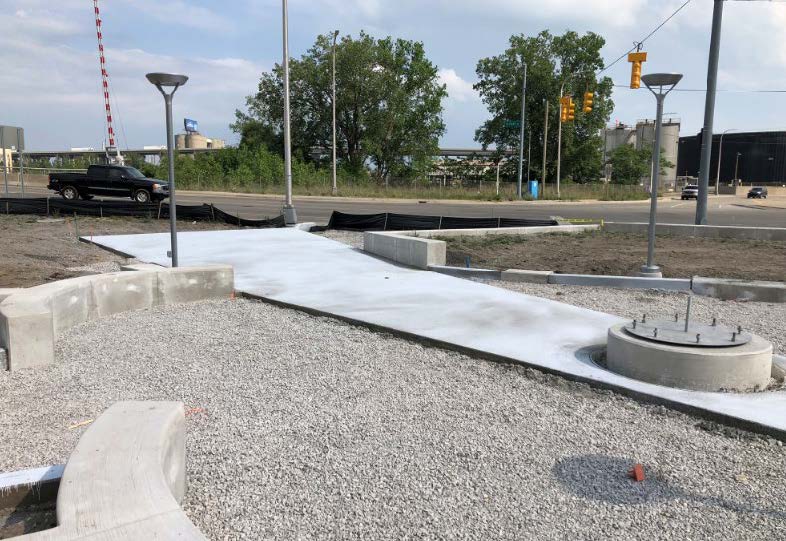
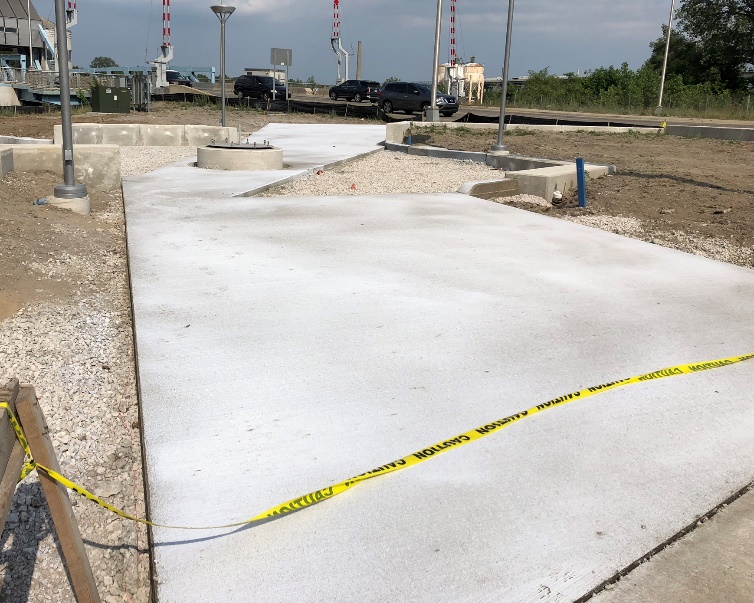
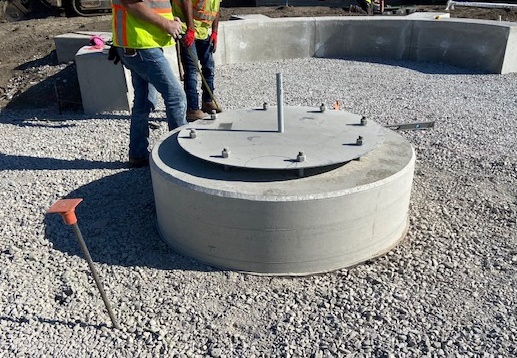
Construction Update! February, 2020
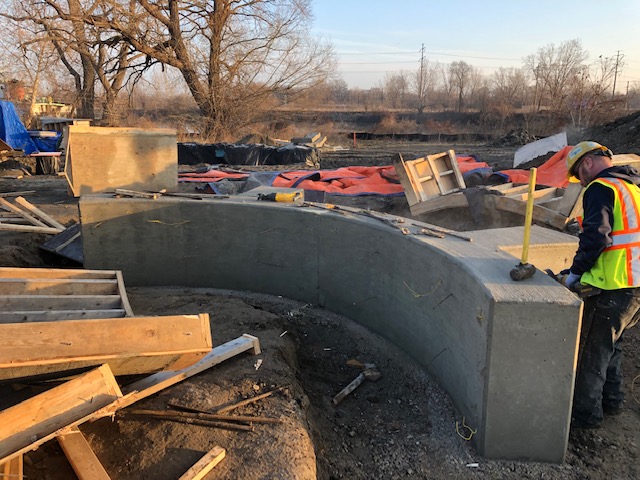
Construction Continues! January, 2020

Construction Has Begun! November, 2019
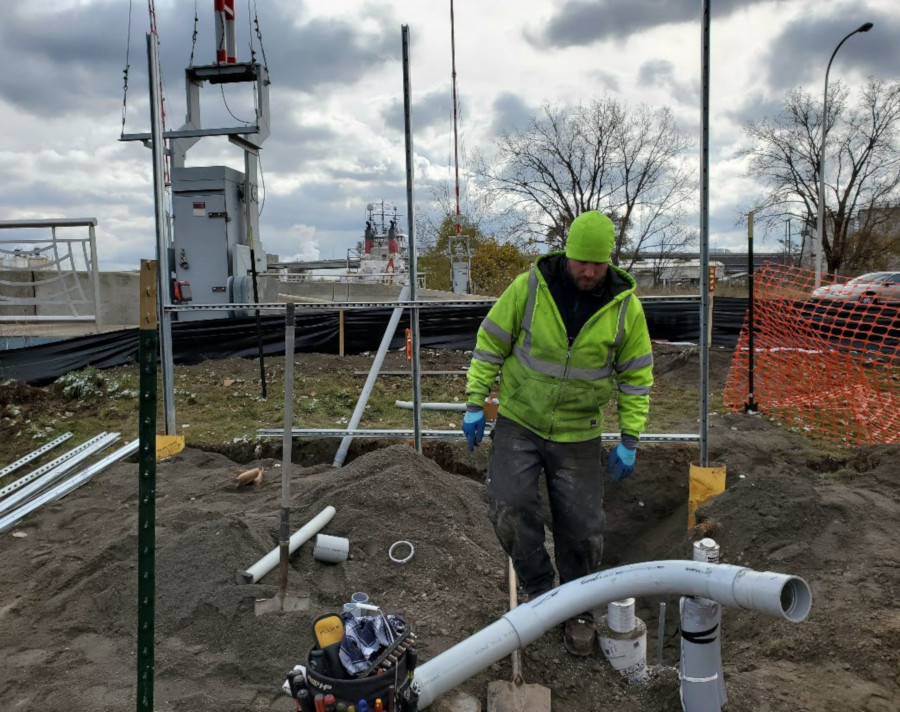
Ground Has Been Broken -- October 9, 2019!
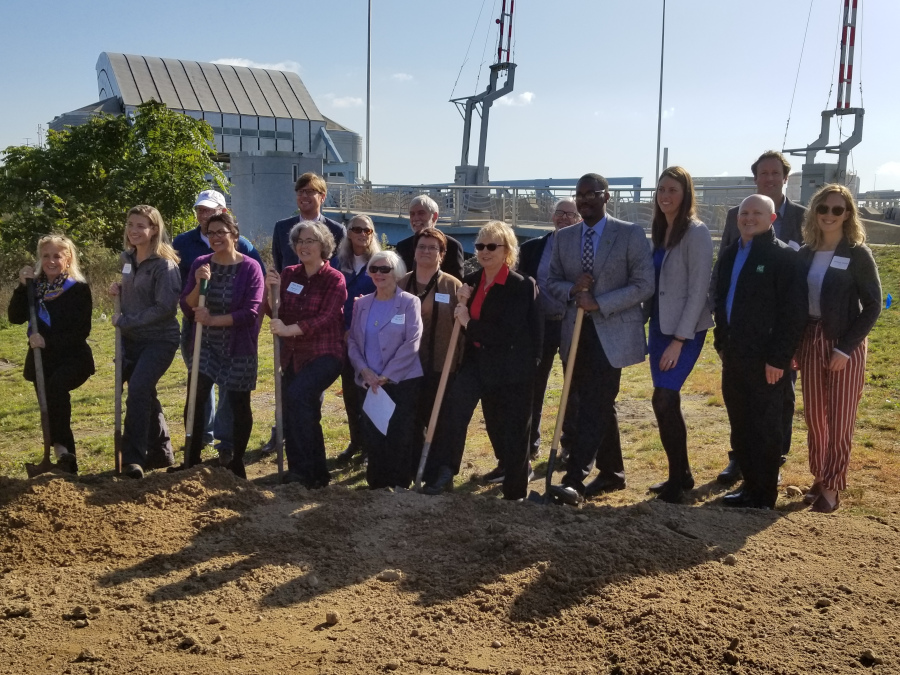 Congresswomen Debbie Dingell and Rashida Tlaib join MotorCities Executive Director Shawn Pomaville-Size and representatives from the Fort-Rouge Gateway Partnership (FRoG) put shovels in the ground at the site of what will soon be the Fort Street Bridge Interpretive Park in southwest Detroit.
Congresswomen Debbie Dingell and Rashida Tlaib join MotorCities Executive Director Shawn Pomaville-Size and representatives from the Fort-Rouge Gateway Partnership (FRoG) put shovels in the ground at the site of what will soon be the Fort Street Bridge Interpretive Park in southwest Detroit.
Contact Brian Yopp, This email address is being protected from spambots. You need JavaScript enabled to view it. , 313.259.3425, with any questions about the park.
Read a Detroit Free Press article about the origins of the park efforts.
Enjoy this video on the plans for the new park space.
Click here to view the preliminary site plan
